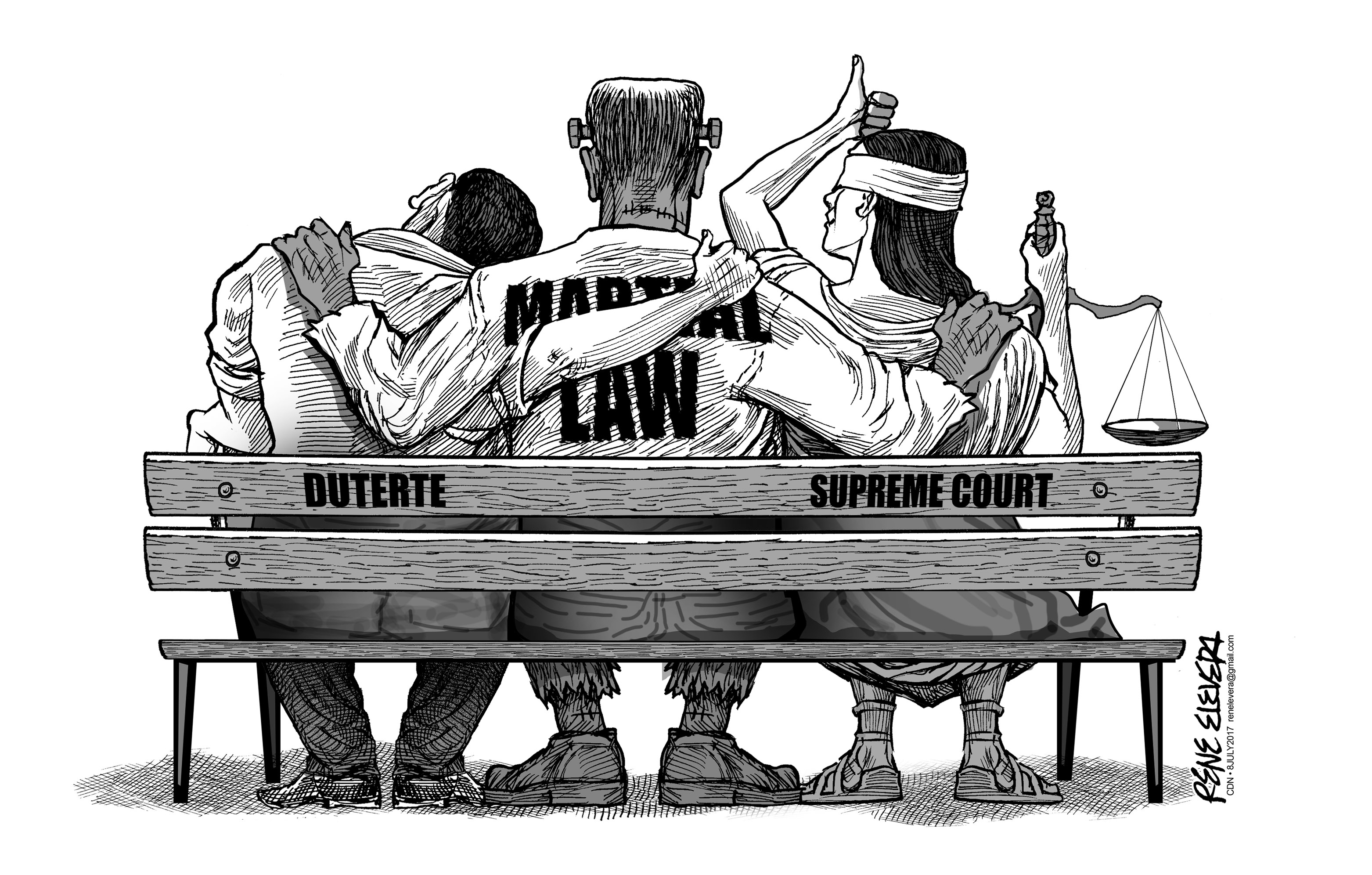
The Supreme Court’s ruling affirming President Rodrigo Duterte’s declaration of martial law in Mindanao came days after the President referred to the 1987 Constitution as a “scrap of paper” that he can ignore when it came to protecting the troops battling the Maute terrorist group in Marawi City.
The gist of the High Tribunal ruling centered on their contention that they can review but not limit the President in enforcing martial law, whose grounds for declaration and enforcement are rooted on the very real possibility of rebellion and invasion.
There was little to no debate that tough action was needed to deal with the Maute terrorists, who crept out of nowhere to seize control of Marawi City, and they continue to hold portions of it to this day.
But critics who filed legal action against the declaration of martial law in Mindanao have more than enough reason to fear this latest SC ruling since it has practically given the President and the military free rein in expanding the enforcement of martial law throughout the country.
With their ruling, the Supreme Court had imposed little to zero restraints on President Duterte in declaring martial law and enforcing as he sees fit, opening the gates for possible abuse by those under his administration specifically the military and the police.
That President Duterte assured he won’t impose martial law on a whim is no solid assurance at all given how the ruling had granted him license to declare and impose it on his own judgement — which isn’t perfect.
One of those who voted to limit martial law to Marawi City and even its surrounding areas was Chief Justice Maria Lourdes Sereno, who perhaps believed that the Maute terror threat wasn’t serious enough to warrant placing the entire Mindanao under martial law.
She is likely disappointed at how her colleagues in the High Tribunal voted — not only accepting hook, line and sinker the President’s reasons for declaring martial law but agreeing to give him legal grounds to declare and impose it anywhere he wants at any time.
Senate President Aquilino “Koko” Pimentel III may have sought to assure the public by insisting that a joint congressional review of martial law will be done to monitor its implementation.
But considering that he has Congress at his beck and call, it is expected that they will agree with whatever explanation and justification the President will give in imposing martial law anywhere in the country including the Visayas, which had lately been visited by the Abu Sayyaf bandit group.
By issuing the ruling affirming President Duterte’s declaration of martial law, the Supreme Court had effectively capitulated and surrendered whatever checks and limits they could bring to bear to ensure that martial law wouldn’t be subjected to abuse by his administration or his eventual successors.